Digging in the Dirt: March Chapter Highlights 2024
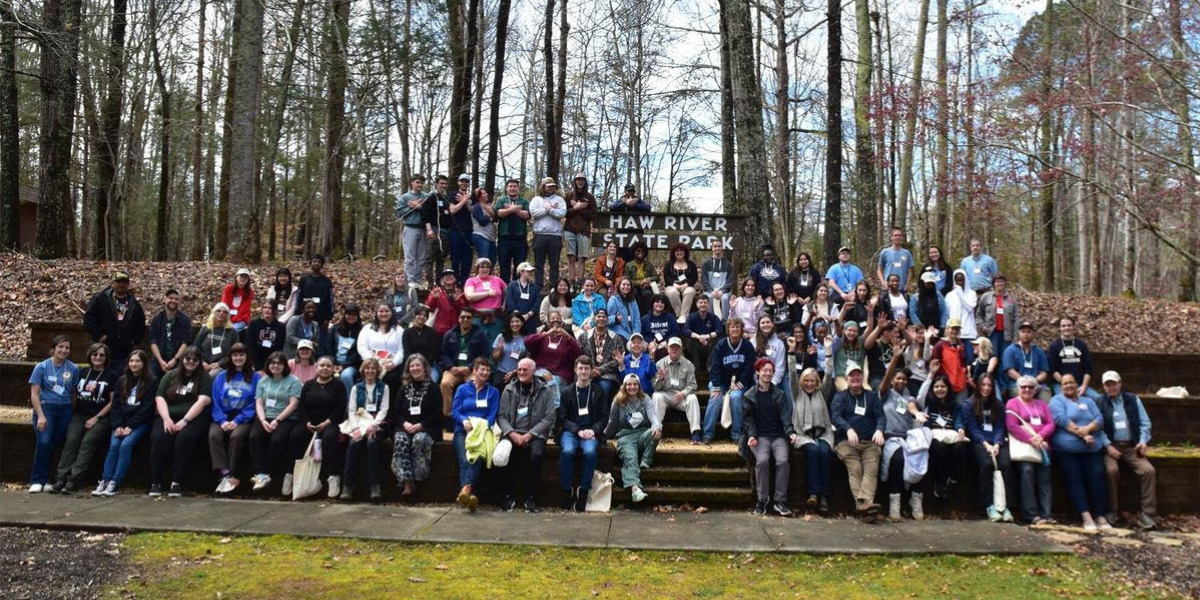
North Carolina Wildlife Federation staff and Community Wildlife Chapter volunteers did a whole lot of tree planting, soil digging, nest installing, creek cleaning, moth viewing, invasive plant removing, environmental educating and more in March to promote healthy wildlife habitat and inspire people to get outside.
In total, 250-plus volunteers were engaged. Over a thousand native plants were installed and over a thousand pounds of trash was picked up. Over 1500 people were given the opportunity to connect with nature through one of NCWF’s various opportunities this month.
Thanks to partners for helping make these habitat restoration workdays, educational programs and nature outings possible. Explore our Events Calendar to discover where NCWF and our Community Wildlife Chapters are hosting in-person and virtual events near you. Check out a few highlights below from our conservation outreach team.
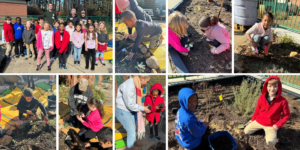
EcoKids Dig the Soil at Joyner Elementary, December 11. The South Wake Conservationists hosted an Eco Kids event with students at Joyner Elementary in Raleigh. Together the group installed a Butterfly Highway Pitstop featuring little bluestem, slender woodoats, beautyberry, blazing star, wild bergamot, ironweed, bluestar, purple coneflower, milkweed and more!
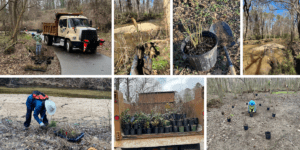
Bolin Creek Tree/Shrub Planting, February 27 and March 2. After clearing 5 acres worth of invasive privet along Bolin Creek in Chapel Hill, the Tri-County Conservationists replanted the riparian habitat with 510 shrubs, 260 trees and a thousand river oats!! In other words… a dump truck load of native plants! A huge effort that took two separate workdays
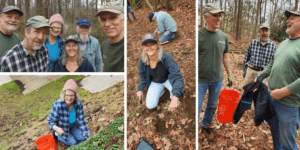
Bass Lake Garden Workday, February 28. The South Wake Conservationists prepared the Bass Lake Garden for the upcoming season. The garden has a wide variety of native plant species that are now poised and ready to spring to life!
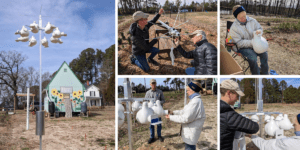
Purple Martin House Installation, February 29. The South Wake Conservationists installed a new purple martin house assembly at Simple Gifts Community Garden in Apex, just in time for nesting season. These amazing birds are just coming in from Brazil for the spring and early summer, as part of their annual migration. They are the largest cavity-nesting swallow species. and they eat nothing but insects caught high in the air “on the wing.”
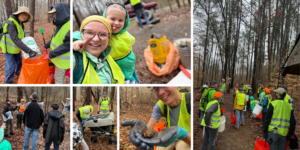
Lick Creek Cleanup, March 2. The North Carolina Wildlife Federation and the Friends of the Mountains-to-Sea Trail hosted a cleanup at Lick Creek in Durham/Wake Forest. The crew of 21 removed 528 pounds of garbage. Sound Rivers was onsite to share knowledge about the creek and how communities can take action to preserve the health and beauty of our river basins.
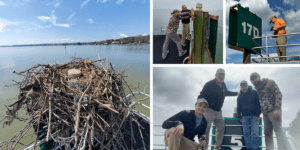
Lake Norman Osprey Habitat Enhancement, March 5. Ospreys typically nest on tall structures that are somewhat isolated and over water. ATONS (Aids to Navigation) are very appealing as nesting sites to the raptors, but such structures pose a hazard to both birds and boaters. LNWC and the Lake Norman Marine Commission took to the water this week to address the issue by installing deterrent devices to prevent ospreys from nesting upon the markers.
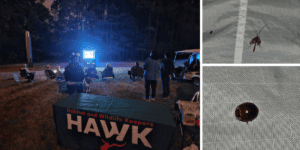
Chimney Swift & Moth Night, March 5. The Habitat and Wildlife Keepers (HAWK) held their monthly meeting at Purser-Hulsey Park and Community Garden. Members of the community learned about chimney swifts and visited the chimney swift tower installed by HAWK back in 2021. Dr. Ken Neidel explained the significance of the chimney swift tower and shifted the discussion to moths with a live moth surveying demonstration at dusk.
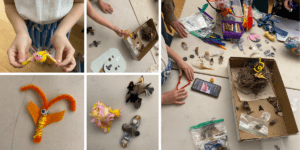
Bug Out with Pocosin Arts, March 6. NCWF and Pocosin Lakes National Wildlife Refuge collaborated with Pocosin Arts School of Fine Craft to offer a program all about bugs and other insects that we will continue to see more of as we enter the spring season. Participants created their favorite insects out of crafting supplies and shared stories about their wildest insect encounters!
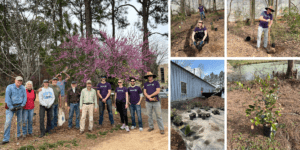
Art Park Tree Planting, March 8. The North Carolina Wildlife Federation alongside corporate volunteers from Truist and volunteers from the South Wake Conservationists planted 25 trees, 75 shrubs and 50 pollinator plants at the NC Museum of Art Park in Raleigh. This included species such as American beech, serviceberry, sycamore, elderberry, stokes aster and more!
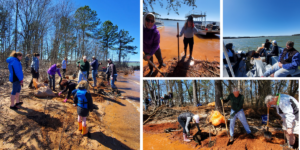
Lake Norman Buttonbush Planting, March 10. The Lake Norman Wildlife Conservationists continued their buttonbush planting effort on the Lake Norman island habitats. The islands of Lake Norman provide critical refuge for all kinds of wildlife including deer, fish, birds, and pollinators. Buttonbushes reduce erosion and stabilize these island shorelines while increasing habitat and forage for local wildlife.
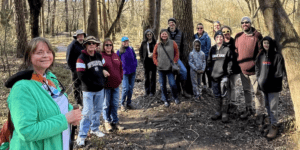
Haw River Nature Tour, March 10. The Tri-County Conservationists went on a fun tour of the Lower Haw River State Natural Area. The NC Natural Heritage Program rates this natural area as Exceptional for aquatic habitat, and Very High for habitats and riverbank lands. Big thanks to Friends of Lower Haw River State Natural Area for being our guide!
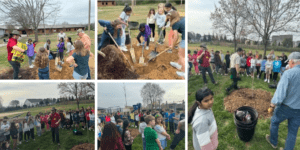
Arbor Day Tree Planting, March 12. MARSH partnered with NCWF, Union County Schools, the North Carolina Forest Service, and the Union County Center to plant 20 large trees at 7 different elementary schools across the area. In the span of just two weeks, over 900 students and 20 teachers were engaged in these educational hands-in-the-ground tree plantings. These trees will provide schoolyard habitat and shade for generations to come!
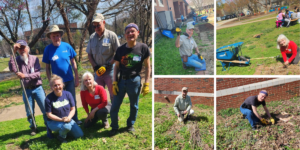
Millbrook Garden Workday, March 14. The South Wake Conservationists prepared the garden at Millbrook Elementary School for the upcoming season. The garden has a wide variety of native plant species that are now poised and ready to spring to life!
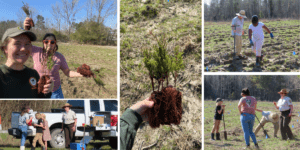
Atlantic White Cedar Forest Planting, March 14. NCWF, Pocosin Lakes National Wildlife Refuge and community volunteers teamed up to plant 500 Atlantic white cedar tree seedlings at the site of the refuge’s Millennium Forest in Columbia. Across from the Red Wolf Center, these cedar stands will create crucial wildlife habitat and opportunities for community recreation and education in the forest!
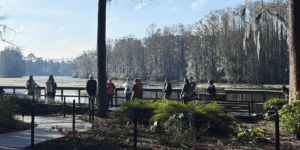
Greenfield Lake Nature Walk, March 16. Lower Cape Fear Wildlife and Cape Fear Bird Observatory hosted a nature walk at Greenfield Lake in Wilmington. It was an absolutely perfect morning! Flowers are in bloom and yellow-throated warblers are singing from the tree tops. Some favorites from the morning were the many turtles, green heron, wood ducks, and black-and-white warbler.
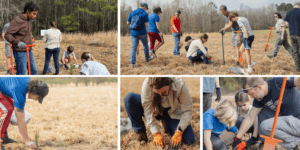
Longleaf Pine & Native Grass Planting, March 16. Students from Fuquay-Varina High School 4-H Spatial Science Club joined the North Carolina Wildlife Federation, the North Carolina Forest Service and Wake County Parks, Rec and Open Space. The crew planted 300 longleaf pines and 300 native grasses at the future Beech Bluffs County Park.
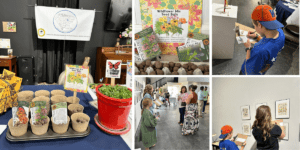
Columbus County Songbirds & Native Plants, March 16. The Southeastern Swamp Stewards celebrated Bess Taylor and her exhibit all about the songbirds of Columbus County. The event was held in downtown Whiteville at the Arts Council. The chapter also led educational activities about native plants while promoting the butterfly highway program.
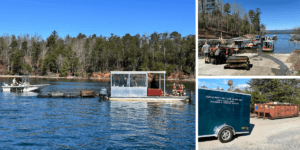
Lake James Annual Cleanup, March 16. The Lake James Area Wildlife and Natures Society completed their annual litter cleanup around Lake James. The weather was perfect for the 130 adults and 78 teenagers that showed up. Volunteers completely filled a 40 foot dumpster and removed several thousand pounds of trash from the lake!
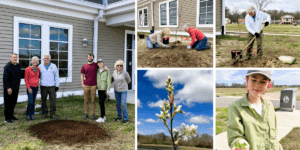
Camden County Public Library Tree Planting, March 16. The Wildlife Habitat Stewards of Northeastern NC partnered with a local library to plant six Shadblow serviceberry trees around the Camden County Public Library. In early spring, short-lived, fragrant white flowers bloom just prior to leaf emergence and blue-black berries are produced in early summer, both serving as wildlife food sources. Over 100 species of butterfly and moth caterpillars feed on the tree!
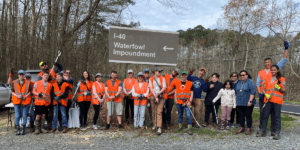
Durham Creek Week Cleanup, March 17. NCWF teamed up with Clean Jordan Lake for Creek Week on a cleanup in Durham to promote the health of the Jordan Lake Watershed. Twenty-four enthusiastic volunteers helped to prevent 437 lbs of trash from getting washed into the New Hope Creek at the I-40 Waterfowl Impoundment.
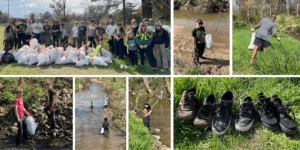
Charlotte Creek Week Cleanup, March 17. The Charlotte Wildlife Stewards once again participated in Char-Mecks annual Creek Week. Volunteers removed trash from a section of Briar Creek at Chantilly Ecological Sanctuary. Briar Creek is an important tributary of the Catawba River Basin providing habitat, recreation, and drinking for our neighbors downstream. This year around 30 volunteers removed over 400lbs of trash from the creek!
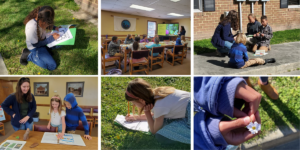
ecoEXPLORE Botany Basics, March 19.NCWF and Pocosin Lakes National Wildlife Refuge partnered with the Tyrrell County Library to offer this month’s ecoEXPLORE Botany Badge program! ecoEXPLORERs
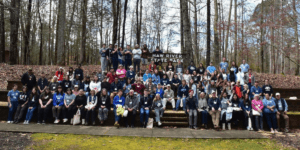
Ocean Advocacy Workshop, March 22 – 23. Over 100 people, including NCWF chapter leaders and college students, were in attendance at the two-day advocacy workshop held in partnership with UNCG Sustainability & Green Fund, NCWF, and the Plastic Ocean Project. Haw River State Park hosted the two-day-long event, where speakers informed attendees about the Rights of Nature bill, plastic impacts in our oceans, and NCWF’s Save Our Sounds campaign and how they could be advocates for our environment and wildlife by leveraging social media. Attendants also took part in a guided nature walk through the state park and smores in the evening!
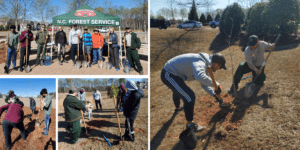
Union County Habitat Workday, March 23. The Union County Wildlife Chapter partnered with NCWF and the North Carolina Forest Service to plant trees in a newly developed community in Weddingtown. As Union County continues to see rapid development and habitat loss, volunteers planted 25 trees that will contribute valuable habitat to wildlife in the area.
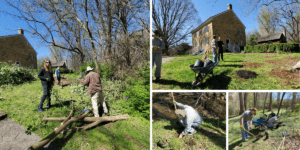
Charlotte Invasive Removal Part 2, March 24.The Charlotte Wildlife Stewards partnered with CleanAIRE NC to continue the removal of invasive species at the Charlotte Museum of History in preparation for Charlotte’s flagship Earth Day event on April 20th. Over 30 volunteers turned out to remove english ivy, privet, and honeysuckle. As part of the project, 30 native plants, and two bird nesting boxes were installed in an effort to certify the property as a wildlife habitat!
Written by:

– Seana Finn, Conservation Coordinator

– Luke Bennett, Conservation Coordinator
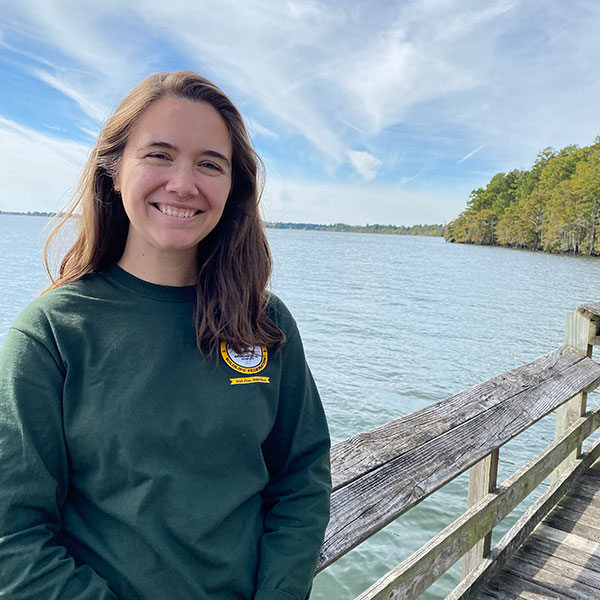
– Laura Frazier, Refuge Conservation Coordinator
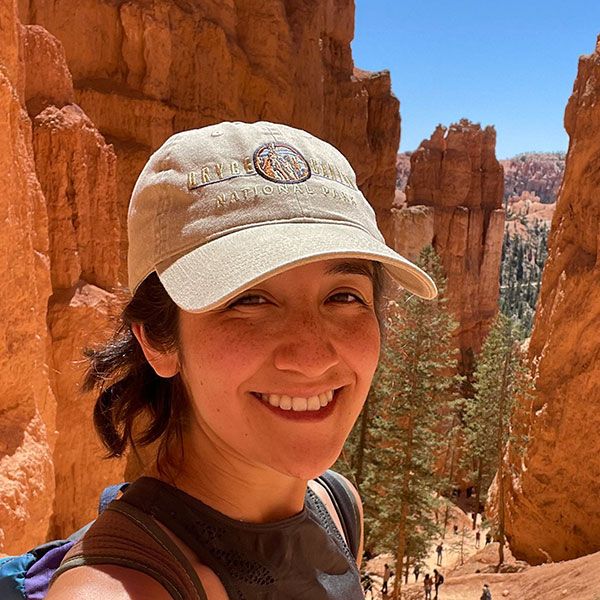
– Natalie Bohorquez, VP of Conservation Partnerships
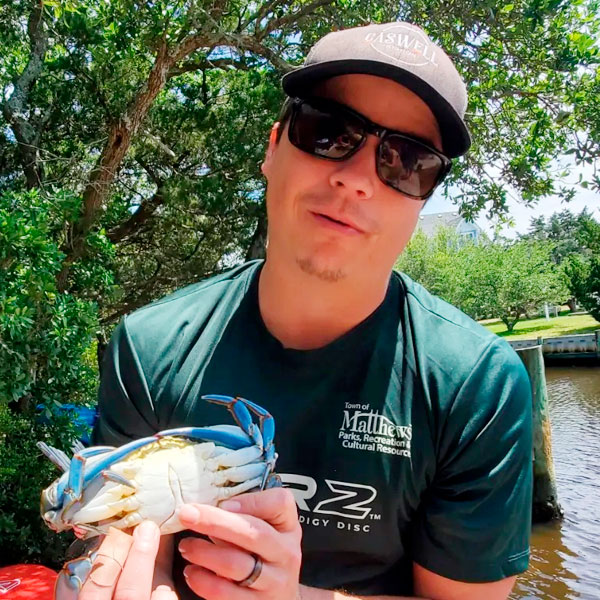
– Alden Picard, Conservation Coordinator
